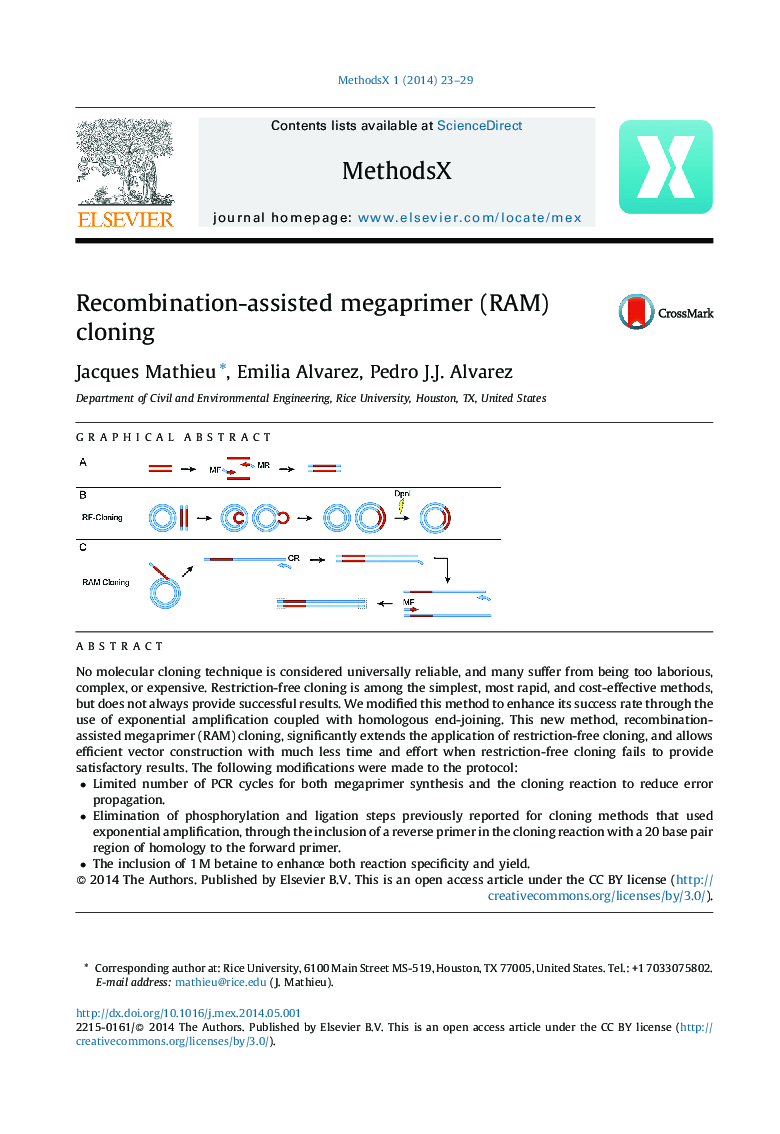| Article ID | Journal | Published Year | Pages | File Type |
|---|---|---|---|---|
| 2058688 | MethodsX | 2014 | 7 Pages |
No molecular cloning technique is considered universally reliable, and many suffer from being too laborious, complex, or expensive. Restriction-free cloning is among the simplest, most rapid, and cost-effective methods, but does not always provide successful results. We modified this method to enhance its success rate through the use of exponential amplification coupled with homologous end-joining. This new method, recombination-assisted megaprimer (RAM) cloning, significantly extends the application of restriction-free cloning, and allows efficient vector construction with much less time and effort when restriction-free cloning fails to provide satisfactory results. The following modifications were made to the protocol:•Limited number of PCR cycles for both megaprimer synthesis and the cloning reaction to reduce error propagation.•Elimination of phosphorylation and ligation steps previously reported for cloning methods that used exponential amplification, through the inclusion of a reverse primer in the cloning reaction with a 20 base pair region of homology to the forward primer.•The inclusion of 1 M betaine to enhance both reaction specificity and yield.
Graphical abstractFigure optionsDownload full-size imageDownload as PowerPoint slide
